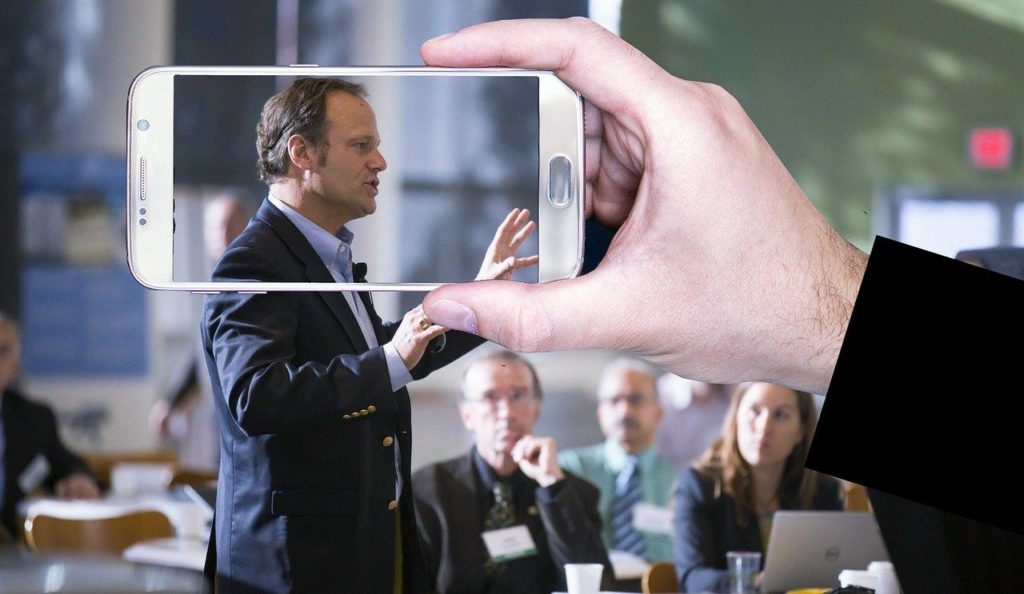Over twenty years ago, I started my life as a virtual executive. I had been looking at office space in New York or San Francisco, when along came a cowboy and swept me off my feet. (When I say cowboy, I mean a real cowboy. A mountain living, cattle wranglin’, horse riding man who personified the character and integrity you see in the best of the cowboy stereotype.)
He was worth moving to a 550-square-foot, 75-year-old cabin. A cabin heated only by a wood-burning stove that didn’t even have phone service at first. The challenge was executing the work that I do and love while being with the man I loved.
I had to learn to work successfully in a whole new way. That meant I still had to manage my team and interact with my clients but with little face time. Quite unintentionally, I ended up being virtual before virtual was cool.
It was a bold move for the time, but in my first year on the ranch, my corporation brought in more money than it had the previous fifteen years.
Whether through crisis or choice, you too may find yourself becoming a virtual executive. You have to put yourself out there, elevate your game, and stand out even when others can’t see you physically. It may seem daunting, but you can do this. With effort on your part, you may find yourself having the best year of your career.
The Challenge of Being A Virtual Executive
As you begin to navigate working remotely, it may seem difficult to make an impression on bosses and coworkers who you only “see” on a daily or weekly videoconference. A recent Insider.com survey stated that 56% of those surveyed felt their opinions and ideas are heard less in video meetings.
So, how do you differentiate yourself from others in an online world? How do you put your best foot forward in the virtual business space? And how do you make them remember you for the right reasons?
Be A Leader, Online And Off.

Technical savvy alone will not make you a good virtual executive. You will also need to be a good person and a hard worker with common sense and good people skills. If you do not have such qualities, no amount of practical, technological understanding will save you.
If you do possess all these traits, you have to demonstrate them in your text messages, e-mails, phone conversations, video chats, and digital networking.
Know how to use the technology. It shows that you are smart and willing to adapt to today’s work environment, but also know that your virtual presence is not dependent upon technology. It is dependent upon you.
Who you choose to be when nobody is watching is the same person everyone else sees, if not now then sooner than you think. Working from home doesn’t allow you to hide your true self behind your screen.Your character will reveal itself more readily than you realize.
To be a contender today, you must be the same person online as well as offline.
1. Have Integrity And Have It All The Time
Having upright character is entirely self-serving: You feel good about yourself, and you sleep soundly. You don’t fear how your actions will look in the newspaper or in the blogosphere. You’re not worried about what your boss or coworkers will think, because you’re already doing the right thing, at the office and at home. Integrity is the ultimate destressor.
Consider these three truths:
- Fame, popularity, and riches go away; only character endures.
- Ethos is always established at the top, and you’re at the top of your world. You are in charge of your choices.
- People want to trust you, so make it easy for them to, especially when they can’t see you.
Upright actions are all due to you. Whatever your background and upbringing, you choose whom you want to be going forward. You have possession of your life when you own up to personal responsibility. You don’t when you won’t.
It’s a simple choice – do the right thing or don’t. Tell the truth or don’t. If you choose not to, you will be found out. You will lose the trust of those around you, and you will never get it back—even when you are being truthful.
Integrity is pretty simple: show up, get in fast with the truth, let go of the outcome.
2. Bring A Happy Heart And Joyful Heart To Work

Your attitude is more important than your education, technical savvy, or company experience. In life there are few things you have control over; your perspective and attitude are two areas you do. You will do better in life if you choose a most-things-are-possible philosophy, especially when times are hard.
Work life is 10 percent about what happens to you and 90 percent about how you deal, react, respond, and view it. Learn more about leading from the home office… https://bit.ly/3clW5XO. @debrabenton #virtualexecutive #leadership… Click To TweetWork life is 10 percent about what happens to you and 90 percent about how you deal, react, respond, and view it. You have to start somewhere, so begin things with a bright end in mind.
Because if you lose control of your attitude while under pressure from others, you lose, period.
It may seem corny to others, but it’s okay to wear an enthusiastic, positive attitude on your sleeve. That’s a constructive and productive point of view when coupled with plans to make it happen. A positive, optimistic approach will improve the outcome of any conference call, even if you’re the only one on the call who has one.
Yes, I know that life is frequently one darn negative thing after another, some bigger than others. Life isn’t for sissies. However, you survive it by being emotionally resilient and limiting the negative things that you add to it.
People make way for someone who boldly pushes past their negativity. Just do it. A positive attitude will not solve all your problems, but as one of my clients said, “A positive attitude will annoy enough people to make it worth it.”
3. Create Confidence And Competence In Others
You have to excel as an individual contributor but also raise the team with every communication channel that you use. Instill confidence and competence in people by setting a good example, and just as importantly, by being invested in them.
Compliment others on your team when they do a good job. If you are managing employees, appreciate and celebrate their work with them, their peers, and your leaders. Give them support and opportunities for risk-taking. In short, treat them the way you would like to be treated.
And in times of crisis, take extra care to show them that you care about them as people and that you are committed to them doing well. A good virtual executive shows real concern and empathy for those around them.
Make The Connection Human No Matter What Technology You Use

There are basically two kinds of information: data and anything pertaining to self. The first type is self-explanatory. The second type of information is what you hear first, remember longest, and act on the most and fastest.
In the same way, information that pertains to others is what they hear first, remember longest, and act on the most and fastest. Find out what that information is for the person on the other end of the screen, email, or telephone.
Within the first 20 seconds of a face-to-face meeting and first 2 seconds of a phone call or e-mail, you have to give the person the number two type of information. Effective online communication delivers empathy; it says that you understand and you care. (tweet)
I work all over the world, so I know that universally all people want to be happy, to love and be loved, to feel smart, and to be valued and appreciated. All of life involves those human interactions.
In business, the same human interactions exist, but with money and title attached to them. Today, and going forward, these human interactions take place through advanced technology. Nevertheless, whatever the conduit may be, it is still human-to-human connections. Always has been, always will be.
So when you utilize a device to call, text, e-mail, or video other people, use a thought-through approach to simply and clearly explain: why people should care, what is significant or important, and what’s in it for them.
There are four potential actions you can take to make a genuine connection with another person.
1. Accommodate The Communication Preferences of Others

To effectively connect and present yourself online, ask early and often of those with whom you deal: “How do you prefer to communicate?” Then use the channel that person prefers even if it is not the one you prefer.
One CEO I knew had an aversion to cell phones and e-mail and preferred leaving voice messages using his iPad. Another CEO preferred yellow sticky notes left on his desk for incoming messages.
However quirky or uncomfortable you may feel, you communicate a respect and concern for the other person when you use their preferred channel…even if the channel is sticky notes.
2. Find Commonality
.A second action is to strive for the common theme, the “something” that connects you together no matter how far apart—age, experience, culture, language, geography, and the rest that could be separators instead of unite-ers.
3. Leave A Lasting Impression
A third action is for you to consistently and persistently work to leave a positive lasting impression regardless of the communication channel you use.
Technology enables you to do things more quickly, but if you want to bond and connect, you will get further faster by being slower and more deliberate in your communication.
Take at least a little time to craft your message and make the exchange productive for all. Outline your objective and rehearse your points so that you can:
- Inform and “tell, not sell”
- Relate a compelling story
- Be exciting
- Be entertaining
- Talk with the viewers, not at them
With prethinking, you’ll relax and show respect to others.
Be sure to choose the right method of contact as well. There is a time and a place for making phone calls or sending text messages or e-mails, having video chats, or using social networks. Pick the right one based on what type of information, type 1 or type 2, you are conveying and be memorable where possible.
4. Strive for Meaningful Interactions
With our sophisticated technological advances, it is easy to lose sight of the human aspect of communication because we do not have to face people and actually see them in the flesh.
People attempt to process you and treat you like a commodity or transaction as compared to developing meaningful interactions. It’s up to you not only to fight the urge to do that yourself but also to resist allowing others to do it to you. That’s your fourth action.
To Be a Great Virtual Executive, Go Beyond Just Learning The Technology

Effective leaders, current and future, have to use every communication tool available to them to get done what needs to be done. Technology and electronic gadgets are just some of those tools. Learn and utilize every device available to you to the extent it helps with your goals, but never let the gadget get in the way of the human factor.
Equally essential tools are the ones that don’t require technical know-how. Your integrity, attitude, and ability to connect to people are the intangible assets needed to become a truly great virtual executive. Your excellence in those areas will manifest in the digital world as well as in the real one.
If you find yourself navigating the challenges of unexpectedly working from home and need a little more guidance, I am now offering short-term help with Bite-Size Executive Coaching in addition to long-term coaching relationships. Click here for details on Bite-Size Executive Coaching.

